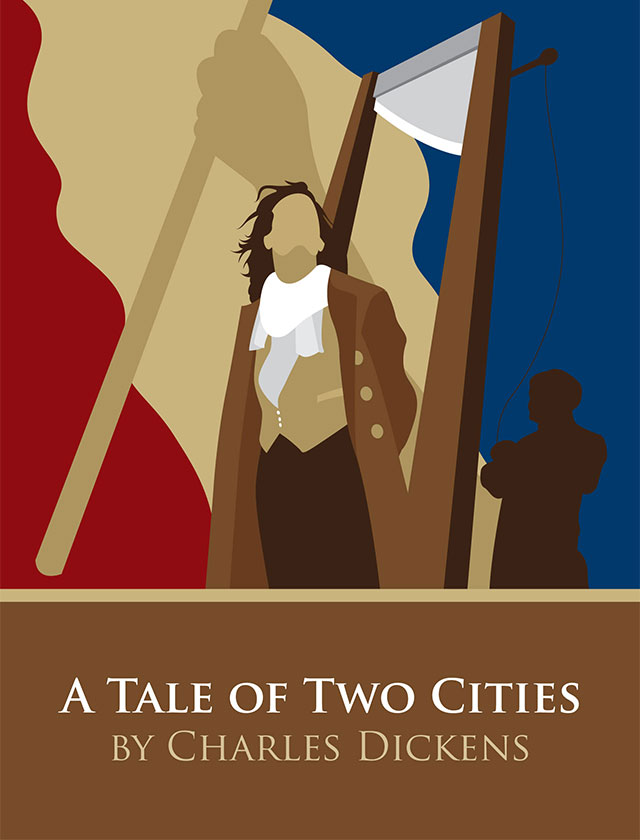A Tale of Two Cities
by Charles Dickens
Book 2, Chapter 13
This chapter features the third of Lucie’s suitors to come forward with his feelings about Lucie. However, Carton, unlike Darnay or Stryker, has no intention of seeking Lucie’s hand in marriage. He does not feel like he is worthy of marrying her. Instead, he tells her about his feelings for her in order to show that she has already helped him transform himself into a better man. Carton tells her that she has made him remember some of his old dreams, which is a vast improvement over this condition prior to meeting her. Lucie does not encourage his romantic affection, but does make it clear that she has positive feelings for him. She suggests that he may be able to redeem himself. Carton tells her that his nature prevents him from any type of continuous elevation and that he knows he will continue to debase himself. However, it is at this time that Carton tells her that he would give his life for her and for anyone she loves.
This scene reveals Carton, who considers himself to be a villain, to be the most selfless of all of the characters in the novel. He does not place expectations on Lucie; instead, he readily acknowledges that rather than elevating him, a union between the two of them would debase Lucie. However, he understands that love does not require him to make demands of Lucie. Of course, the scene makes readers wonder what led Carton to choose this path, rather than the hopeful and optimistic path that apparently was before him when he went to school with Stryker. Carton does not answer this question. While Carton is generally the double of Darnay, in this chapter he is clearly a man who is living in a self-imposed prison. In that way, he becomes a double of Dr. Manette. The fact that Lucie is the one to help both men break free from the psychological impact of their imprisonment is a significant one, and reinforces Lucie’s central role in the novel.
Sign up to continue reading Book 2, Chapter 13 >